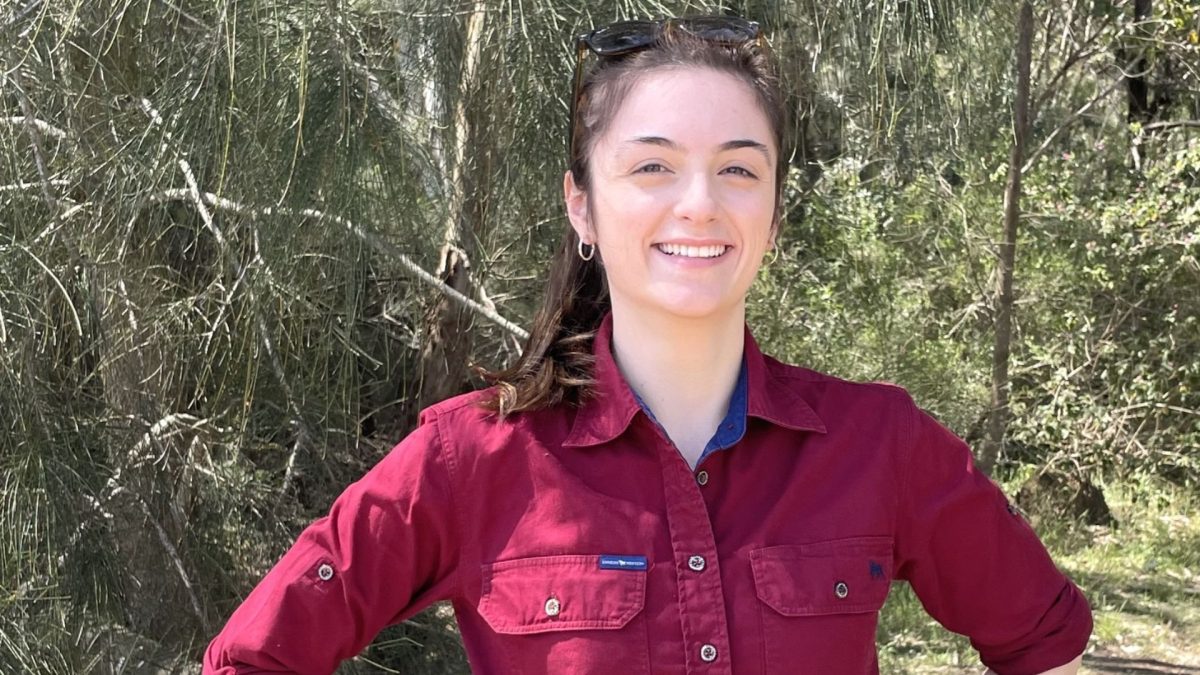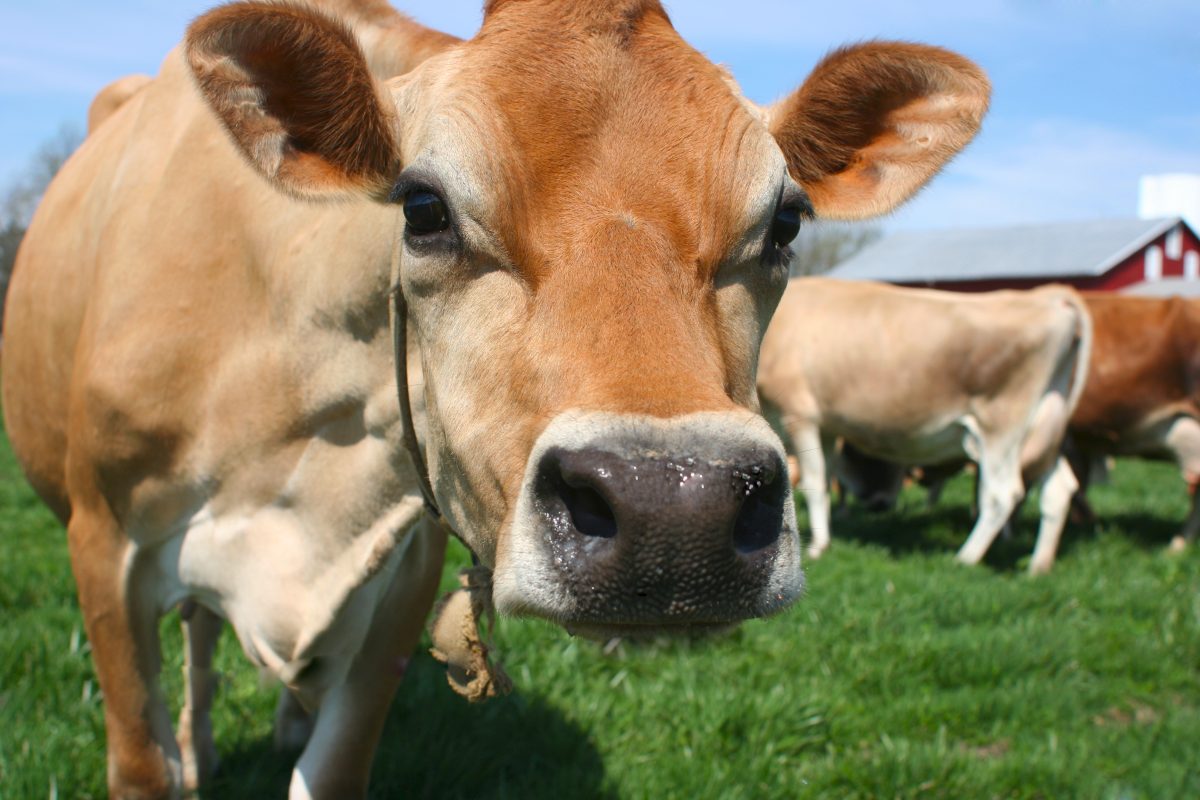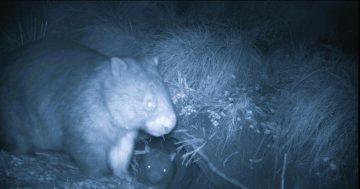
Twenty-four-year-old Tiarna Scerri’s research into alternative treatments for a growing sustainability challenge in the dairy industry has received international recognition. Photo: Charles Sturt University.
A Wagga-based PhD student’s research tackling antimicrobial resistance before it becomes a “full-blown crisis” for the dairy industry has received international recognition, and will be presenting her findings in Melbourne next year.
Originally from Sydney, Tiarna Scerri’s love for dairy cows (particularly Jersey cattle) came from attending an agricultural high school, which led her to eventually pursue a PhD at Charles Sturt University.
“They’re just very calm and pretty animals,” she gushed. “Have you seen Jersey dairy cows? They’re gorgeous.”

Tiarna Scerri thinks these creatures are simply “gorgeous”. Photo: jcyoung2.
The 24-year-old was getting her hair done when she found out she was named as one of five recipients for the Groundbreakers Programs by evokeAG.
“I felt a bit chuffed that they picked me out of everyone,” she said.
“I thought everyone’s ideas were amazing, and there’s a lot of good work happening in agriculture right now.”
Her research focuses on an alternate, genomic-based solution to treat mastitis rather than relying on antibiotics, a growing sustainability challenge in the dairy industry.
Mastitis is the inflammation of the mammary glands in the breast or udder, and can affect humans as well as dairy cows. Common symptoms include a fever, chills, an increased heart rate and swollen breasts, which may feel hot and painful.
Currently, treatment includes antibiotics and self-care management such as a cool pack. However, an issue arises when there is a reliance on common antibiotics as resistance to antibiotics builds over time.
Between 2018 and 2023, antibiotic resistance rose more than 40 per cent, with an average annual increase of five to 15 per cent.
“The problem is when we overuse and use them wrong, the bacteria that we’re actually using them against develop resistance to them,” Ms Scerri said.
“We’ve seen this in other places in the world and it’s the same with humans. [We’ve heard] about how penicillin doesn’t really work anymore, and that’s why we have types of penicillin derivatives.”
The Jersey cattle enthusiast is concerned that at some point antibiotics will no longer be effective at treating mastitis.
“If we continue with the status quo, then eventually Australia will end up in the same position with no alternative, because we haven’t been forward thinking enough to get our ducks in a row,” she said.
“That’s what I’m trying to do, before it becomes a full-blown crisis.”
Ms Scerri hopes to see more “consolidation of diagnosis” in mastitis research. While there are a lot of researchers working on mastitis, everyone is “working in different directions right now”.
“I am one of the ones working on my area, that means I’ve sort of had to start my lab from scratch in a way,” she said.
“That part has been challenging, but I’ve had really, really good supervisors who are helping me along the way.
“In terms of mastitis research, consolidation of diagnosis is really important, just in the sense of being able to actually track antimicrobial resistance to a higher and more specific level.”
She also hopes to see more funding and researchers looking into alternatives to antibiotics treatments.
“It doesn’t matter how much prevention work you do, you always need a treatment that works,” she warned.
“The entire world is carrying along with let’s just create different antibiotics, but one, we won’t be able to chemically make them anymore.
“There’s only so many ways you can alter chemical structures of these penicillins. So we need something different.”
As part of the award, Ms Scerri will receive mentoring, support for professional storytelling and $3000. Her research is set to be completed by 2027.









